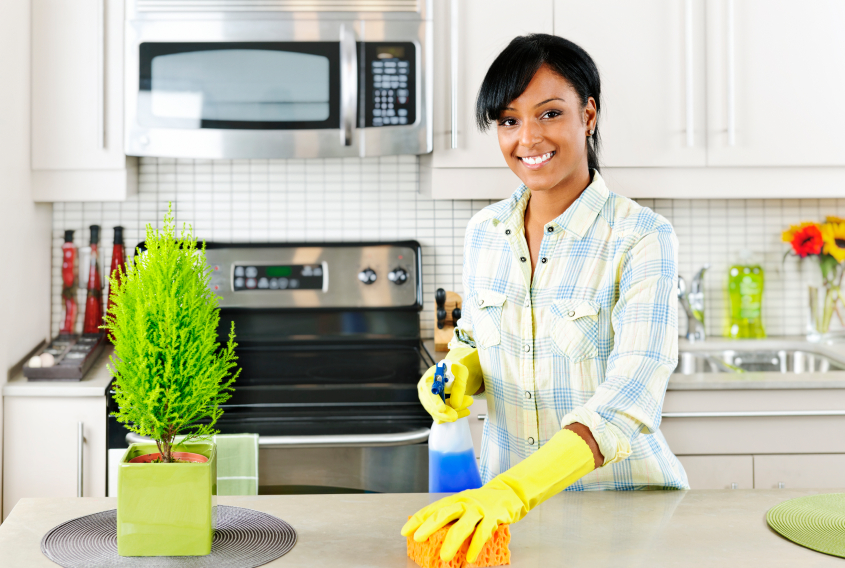
Spring Cleaning the Natural Way
Spring is here and I’m sure plenty of you are thinking about (or dreading) the famed, once-a-year spring clean. But before you jump in, get the canister vacuum out and get your hands dirty, there are a few things you should know about those innocent-looking household cleaners under your sink. You might also be interested in getting help from by checking out this site here for more information.
Household cleaners aren’t regulated in terms of the chemicals they can contain or the labeling of the toxicity of the product on the bottles. As such, many of these cleaning products utilize known carcinogens as active ingredients. Worryingly, many cleaning products contain asthmagens, and continued exposure to these products can aggravate or even induce asthma.
One study, which looked at people who use household cleaners as part of their profession (maids, janitors, etc.), demonstrated that those people had a 4% reduced lung function on average. Another study of 3500 people without asthma concluded that repeated, once a week use, increased a person’s chance of developing asthma by 30-50%. In fact, one in seven adult asthma cases can be attributed to cleaning products and 80% of work-related asthma cases have been linked to household cleaner use in people who previously never had asthmatic symptoms.
To delve a little deeper into the development of asthma from these products, there are two types of asthma that are associated with use: work-aggravated asthma and new onset work-related asthma. Work-aggravated asthma is the exacerbation of a current case of asthma. The use of these products trigger asthmatic responses from people with the disease and leave them with susceptibility to further asthma attacks from even weaker stimuli. It further debilitates their respiratory system and can leave it weaker for long periods of time, even without further exposure to these chemicals.
New onset work-related asthma is a little different, it’s defined as the development of asthmatic symptoms in people with no previous symptoms. There are two types of new onset asthma, one from prolonged exposure (occupational asthma) and the other from an instance of extreme exposure (reactive airways dysfunction syndrome). Occupational asthma is, as it sounds, the development of asthma as a result of constant use of these cleaners. On the other side of the coin, reactive airways dysfunction syndrome, or RADS, comes from exposure to a large amount of chemicals at once, for example the accidental inhalation of a large concentration of lye. Asthmatic symptoms will instantly develop and will continue to persist even after being far-removed from the stimulus. It would be a good idea to consider a Dyson Air purifier to improve the air quality for any asthmatic in your home.
In order to help alleviate or prevent these symptoms, we recommend doing all of your home cleaning with proper ventilation so that the chemicals don’t stay in the air. Also, because a third of the chemicals used in cleaning products can be detrimental to your health, we recommend non-toxic or DIY alternatives. And don’t forget to get checked for asthma sensitivity.
Non-toxic cleaners can be found wherever you purchase your cleaning products. Make sure that the bottle is clearly labeled as non-toxic, as even the products that claim to be ‘all-natural’ can be harmful to your health. If you want some homemade alternatives, we recommend utilizing products like soap and water. Vinegar is another effective and safe cleaner: mixing 1.5 cups of vinegar with .5 cups of water and adding 8 drops of citrus oil (for the scent) in a spray bottle will be an effective glass cleaner. There are plenty of recipes online for DIY cleaning products.
Finally, one last piece of advice: never, ever, ever mix bleach and ammonia products while cleaning. The resulting gas produced by mixing these products can hospitalize and even kill you.
We do not intend to scare you away from cleaning products and we completely understand that these products serve a valuable purpose in keeping our homes clean. We just hope that you will be mindful and safe in your use of these products.
Happy cleaning!
…
Sources
I. Cleaners and Health
II. 8 Household Cleaning Agents to Avoid
III. Health Hazards in Household Cleaners Exposed